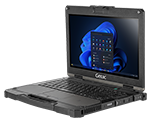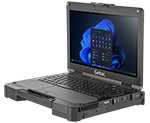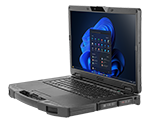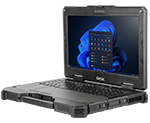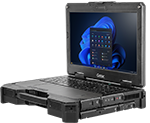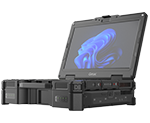The RNLI Historic Lifeboat Foundation Rugged Mobile Computing Solutions uses Getac rugged technology to meet complex rescue needs in harsh marine environments
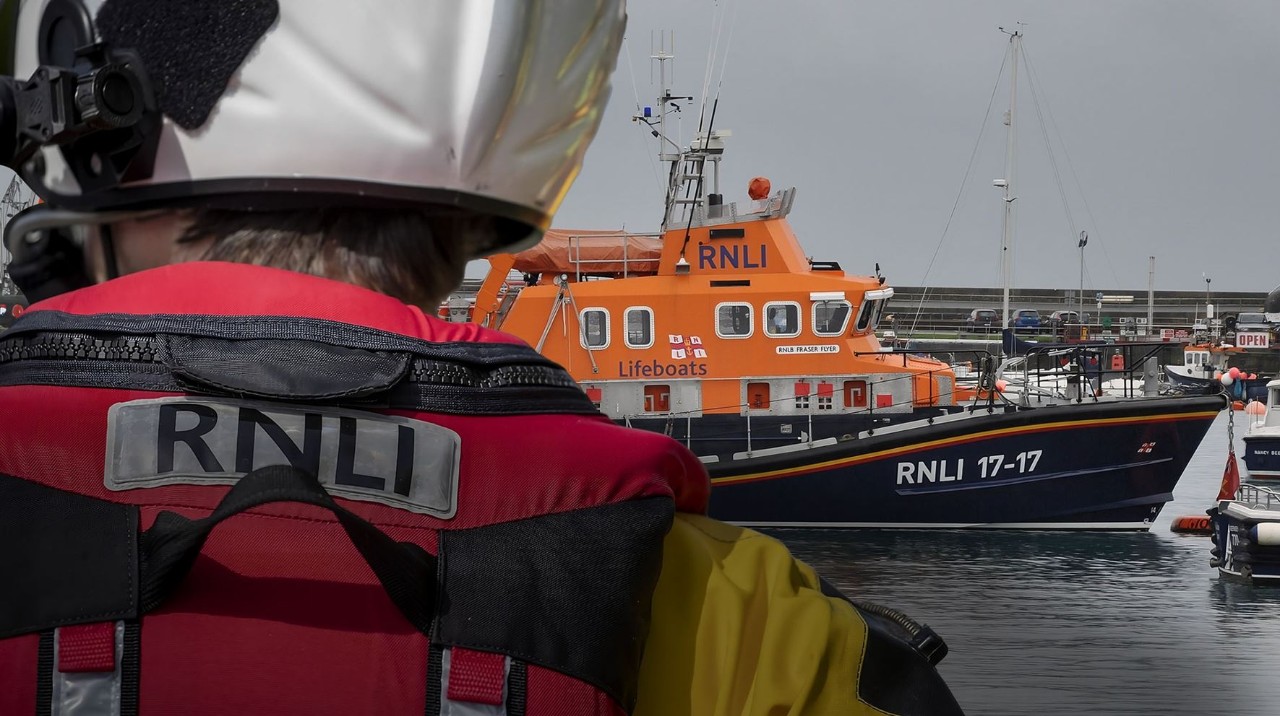
Download the RNLI Historic Lifeboat Foundation case study in full.
Challenge (Summary)
The RNLI Historic Lifeboat Foundation maintains and operates historic RNLI lifeboats, exclusively in support of RNLI fundraising. Each year these Historic Lifeboats travel thousands of nautical miles throughout the UK, Ireland, Europe and Scandinavia, spending many hours at sea in the harsh marine environment. Doing so has been problematic for electronic navigation and network devices onboard the vessels. Extremes of heat, frost, wind, rain, snow, salinity, humidity, condensation and corrosion cause significant and premature deterioration and failure of devices, leading the Foundation to search for a more robust and reliable solution.
Solution (Summary)
Following a detailed strategic systems and operational review, together with an extensive analysis of available solutions, the Foundation quickly pinpointed Getac’s B360 Pro fully rugged laptop as the only solution that ticked all of its boxes. Not only is the B360 Pro built to thrive in harsh and challenging conditions, but its powerful connectivity and lightweight portability makes it ideal for use both at sea and on land.
Benefits (Summary)
With the Getac B360 in place, the Foundation is benefitting from multiple efficiencies in terms of cost, connectivity, and performance. The laptop fulfils all the Foundation’s needs in a single solution, something it didn’t think would be possible.
Challenge
Founded in 1824 by Sir William Hillary, the Royal National Lifeboat Institution (RNLI) is a charitable foundation set up to save lives at sea in the United Kingdom, Channel Islands, Isle of Man and Republic of Ireland. Since its foundation, the RNLI has saved over 143,000 lives. It is a unique Institution, not only in its altruistic ideals, but that it is manned almost entirely by over 32,000 volunteers and relies exclusively on public donations for its existence.
The RNLI Historic Lifeboat Foundation’s mission is to preserve RNLI heritage and contribute to its future. Lifeboats of the past are maintained in service condition and used to inform and educate on the history, gallantry and narrative of crews past, together with fundraising for present and future RNLI generations.
Every year these Historic Lifeboats travel thousands of nautical miles, throughout the UK, Ireland, Europe and Scandinavia in support of RNLI events. They welcome thousands of people aboard and deliver renowned visitor experiences. However, these vessels have complex needs when it comes to IT equipment and devices. Enduring thousands of hours in harsh marine environments, ordinary consumer-grade devices simply can’t meet the demands the environment places on them.
“Our Tour Teams spend a lot of time operating on water, which means our digital devices need to tick a lot of specific boxes,” says Foundation Guide, Gary Rogers.
“Not only must they be able to withstand environmental factors like extremes of heat, cold, wind, rain, snow, salinity, humidity, condensation and corrosion, but they must also offer excellent connectivity to enable navigation capability and communications, as well as facilitate real-time monitoring of critical on-board systems. Additionally, they need to be extremely portable so that crew can easily move between vessels, as well as between sea and land.”
On top of this, as a self-funding organisation, the Foundation needs to ensure that any investment it makes into IT equipment is as effective as possible, ideally offering cost and efficiency savings as part of any upgrade or replacement process.
Solution
When the time came to replace its ageing legacy IT equipment, the Foundation conducted extensive analysis to see how best it could utilise modern technology to reduce the number of devices it used, as well as maximise the efficiency and productivity of its overall operations.
“By swift process of elimination, some 95%+ of the broad laptop market was eliminated. Our only possible solution rested in a fully rugged device and there were moments when we wondered whether our strategic needs might be impossible to meet,” added Foundation Director, Bernard Condon. “We narrowed it down to a shortlist of three rugged laptop manufacturers and their devices to explore further. Within just a few minutes, there was an overwhelming consensus for Getac, and specifically the B360 Pro fully rugged laptop.”
The B360 Pro’s military-grade build quality makes it ideally suited to challenging marine environments. MIL-STD-810H and IP66 certifications means it can be relied on in changeable on-water situations, while an operating temperature range of -29°C to +63°C (-20°F to 145°F) and 6-foot drop resistance enables the team to focus on the task at hand, whether in the hot engine room or on the spray swept flying bridge, without worrying about the device. Elsewhere, its 13.3” capacitive touchscreen display, featuring Getac’s LumiBond® technology, responds to finger, stylus, or glove inputs seamlessly in the rain, snow, or fog, while delivering up to 1,400nits of screen luminance for easy viewing, even under direct sunlight.
The B360 Pro also boasts extensive connectivity options for high-speed communication and smooth coordination of rescue operations. 4G LTE with integrated GPS, coupled with Intel® Wi-Fi 6 AX200 technology, enables ultrabroadband redundancy, with Bluetooth 5.1 handling the low-power duties, and dedicated GPS also available for ultra-precise navigation and location tracking.
The B360 offers all this, and much more, in a highly portable package that weighs just 3.08kg, for exceptional mobility. As such, it can easily be transferred between both land and sea, as well as swapped between different RNLI Historic vessels as needed.
Benefits
With the B360 Pro fully rugged laptops in place, the Foundation is benefitting from multiple efficiencies in terms of cost, connectivity, and performance. One B360 Pro has replaced three of the vessels’ legacy multi-function displays, as well as its shore-based PC, which lacked the direct connectivity needed to be effective.
Teams can use the B360 Pro to monitor a wide range of on-board systems in real-time, including engine and generator temperatures, oil pressures and oil temperatures. The inbuilt GPS and 4G connectivity also provide critical extra layers of redundancy, should all vessel systems fail.
Additionally, the Foundation can utilise the B360 Pro to manage maintenance service dates for all safety equipment, including life rafts, life jackets, fire extinguishers, and fire alarm systems, together with crew records, such as licences, medical, training and safety certificates.
“We never imagined it possible, but the Getac B360 Pro fulfils all of our needs in a single rugged device, allowing us to make an incredible leap forward in both efficiency and performance,” concludes Ishabel MacIntyre, First Officer RNLB “Joseph Soar” (RNLI Portrush Crew).
ABOUT THE RNLI HISTORICAL LIFEBOAT FOUNDATION
“Passages and events on the Historic Lifeboats can be highly demanding, due to uncontrollable factors like weather and sea conditions. With the Getac B360 Pro on board our vessels, we can be confident we have the very best technology at our disposal, which can be relied on to get the job done all year round.”
The RNLI Historic Lifeboat Foundation, maintains and operates historic RNLI lifeboats, exclusively in support of RNLI Fundraising. Each year these Historic Lifeboats travel thousands of nautical miles, throughout the UK, Ireland, Europe and Scandinavia.

